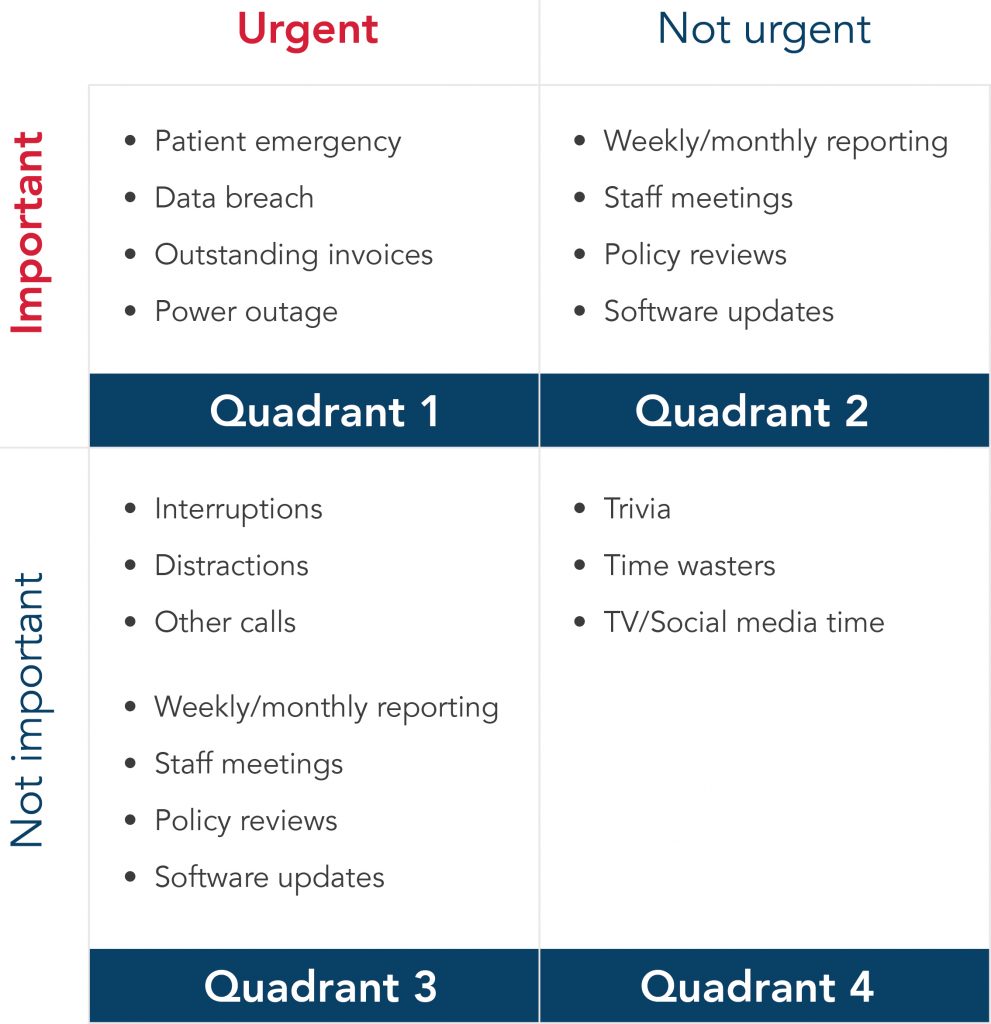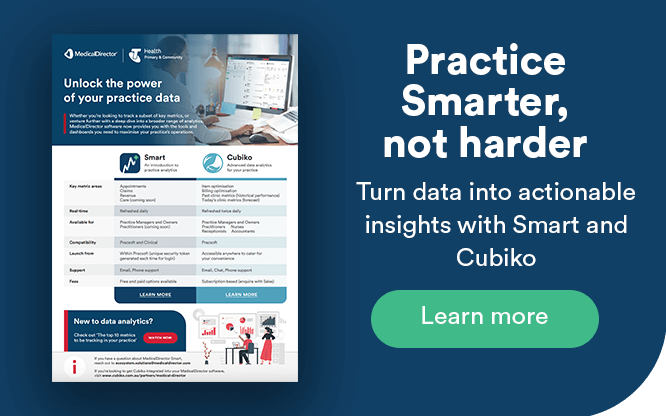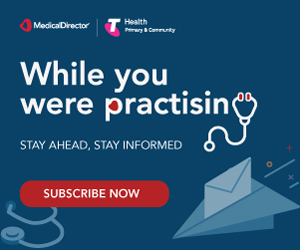Lessons from ‘7 Habits of highly effective people’
Feeling like a ‘firefighter’ every day managing a busy medical practice? Try taking a leaf out of the book, Seven Habits of Highly Effective People.
If you remember one thing about Stephen Covey’s Seven Habits of Highly Effective People, it is the classic time management matrix or quadrant.
In this article, we take a look at how this matrix applies to practice management, and how practice managers can leverage this concept to empower workflow and reduce that dreaded ‘fire fighter’ feeling.
Exercise: At the start of every week, write a two-by-two matrix on a blank sheet of paper where one side of the matrix says “urgent” and “not urgent” and the other side of the matrix says “important” and “not important.” Then, write all the things you want to do that week.
Example for practice management:

Quadrant 1: Urgent-Important
These are the most pressing of tasks you will likely get to in the medical practice. These are the crises that erupt. The most pressing medical urgencies, power or data breaches, last minute rescheduling – all fall into this category. If you’re a practice manager and feel like you’re always doing the fire-fighting, it’s because most of your daily workflow and tasks fall into this quadrant.
Quadrant 2: Not Urgent – Important
These are the things that matter in the long-term for your medical practice – but don’t necessarily yield any immediate or tangible outcomes. These are the things we know we need to do, but tend to push down the to-do list because we’re too busy in Quadrant 1, or getting interrupted with those distractions that fall into Quadrant 3.
But if we make an ongoing habit of not making our tasks in quadrant 2 a priority, these issues could easily escalate and fall into Quadrant 1. For instance, if you don’t make time to upgrade our software, or put it off for too long, you could expose your practice systems to a security and data breach. This would suddenly escalate the issue to become very serious, urgent and highly important.
Quadrant 3: Urgent – Not Important
According to the Seven Habits of Highly Effective People, this is the biggest reason we’re not more successful, effective or productive in the long-term.
Think about your day in your practice. How much of your time is clogged up with last minute phone calls, interruptions, poorly thought-out meetings, faxing and juggling paperwork? These are the activities we tell ourselves in the moment we must do, but if we stopped and really thought about it, we’d realise these aren’t as important as the time and energy we give them. Or more importantly, there’s actually better, faster and smarter ways to do these tasks, to leave time to focus more on the higher priority tasks.
For instance, offering patients the ability to book appointments online, can reduce phone call interruptions. Self-check in kiosks and reduce non-urgent patient interruptions at the front desk. Paperless practice management software can automate a lot of day-to-day paper-based tasks, reducing the administrative burden on you and your team.
Quadrant 4: Not Urgent – Not Important
These things we do because we feel like we’re tired and need a break. It’s watching TV or checking social media at the end of the day. It’s snacking when we’re not hungry, or shopping when we don’t really need anything. They’re not important, yet we prioritise them because they give us a mental break, or give us a sense of pleasure or distraction.
But added up, you’d be surprised at how much these little breaks and distractions actually eat into our valuable time. And there’s a difference between having a real mental break, and eating away our time incrementally with text or social media distractions.
In order to feel more recharged, refocused and re-energised, MedicalDirector’s Chief Clinical Advisor and GP, Dr Middleton, suggests taking the time to take a real mental break. For her, this means not turning on her computer on weekends for work-related tasks, and spending quality time with family. Regular breaks and holidays are also key.
“It’s so important to take a complete break from the working week,” she said. “And have regular holidays planned, so you always have something to look forward to. Even regular weekend getaways can give you that down time to help you recharge and be more energised to see your patients in the week.”










